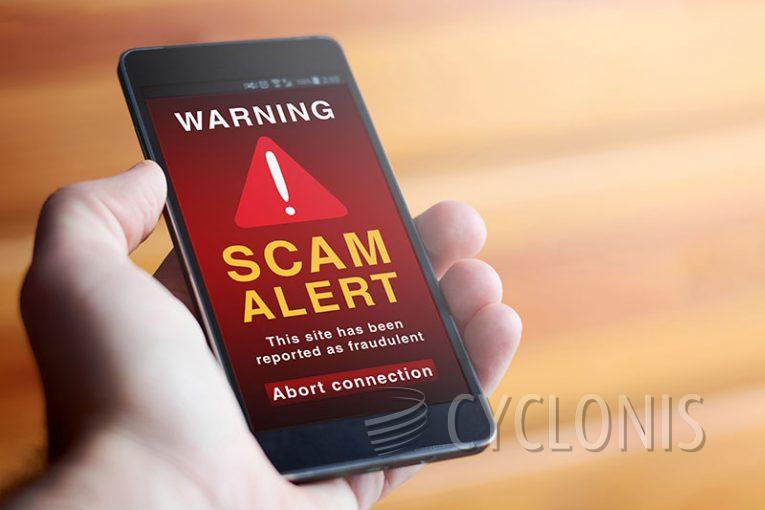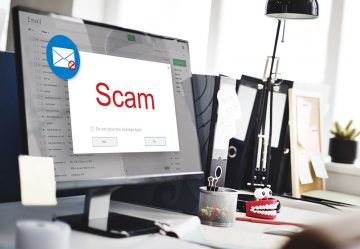Your Apple May Be Not Safe! Pop-Up Scam

Our research team came across the "Your Apple May Be Not Safe!" scam while investigating untrustworthy websites. This scam falsely claims that a visitor's iPhone data may have been stolen while browsing suspicious sites. It's important to clarify that these claims are entirely false and have no connection to any legitimate entities.
The appearance of the "Your Apple May Be Not Safe!" scam may vary slightly depending on the visitor's device, whether it's a smartphone or computer.
When a user encounters this scam, a pop-up window appears, alerting them to potential suspect activity on recently visited websites. The pop-up instructs the visitor to close it and follow certain steps.
Upon closing the initial pop-up, another one emerges, stating that the user's iPhone data might have been stolen due to their visits to suspicious websites. To safeguard against further data leaks, it suggests blocking all linked devices and advises the visitor to install a recommended "ad security and VPN application." This pop-up often includes a countdown timer to create a sense of urgency.
Generally, scams like "Your Apple May Be Not Safe!" are employed to promote unreliable, fraudulent, and potentially harmful software. It's worth noting that during our research, this particular scam did not successfully redirect to an operational page, although this may vary depending on the visitor's location or other factors. Furthermore, the scammers responsible for this fake alert could rectify this issue, potentially leading visitors to software-promoting webpages without any problems.
Scams of this nature primarily aim to push fake anti-virus programs, adware, browser hijackers, and potentially unwanted applications (PUAs). In rare cases, these scare tactics may be used to spread malware such as ransomware, trojans, or cryptocurrency miners.
Another less common scenario is that such scams may direct users to the official websites of legitimate products or services. This tactic is often employed by scammers looking to earn illegitimate commissions by exploiting affiliate programs associated with the promoted content.
How Can You Tell a Warning Message is a Scam and Not Genuine?
Distinguishing between a genuine warning message and a scam can be challenging, as scammers have become increasingly sophisticated in their tactics. However, there are some common indicators that can help you identify whether a warning message is a scam and not genuine:
- Unsolicited Contact: Genuine warnings or alerts from trusted organizations typically don't arrive out of the blue. Be cautious of unsolicited emails, pop-ups, or text messages, especially if they claim to be from a company or institution you didn't expect to hear from.
- Urgent Language: Scammers often use urgency to pressure recipients into taking immediate action. Be skeptical if the message insists you must act urgently, threatening consequences if you don't comply.
- Poor Grammar and Spelling: Scam messages often contain grammatical errors, typos, and awkward language. Legitimate organizations maintain professional communication standards.
- Generic Greetings: Scam messages may begin with generic salutations like "Dear User" instead of addressing you by name. This is because scammers often don't have your personal information.
- Request for Personal Information: Be cautious of messages asking for personal information such as your Social Security number, credit card details, or passwords. Legitimate entities typically don't request sensitive data through unsolicited messages.
- Too Good to Be True Offers: If a message promises unbelievable rewards or benefits, such as winning a large sum of money, a free product, or a dream vacation, it's likely a scam. If it sounds too good to be true, it probably is.
- Unusual or Unofficial-Looking Websites: If the message directs you to a website that appears unprofessional, has a suspicious domain, or lacks encryption (https://), it could be a scam site.
- Lack of Official Logo or Branding: Legitimate messages from companies or institutions typically include their official logo and branding. Scams often lack these elements.
- Trust Your Instincts: If something about the message doesn't feel right or raises doubts, trust your instincts and err on the side of caution.








